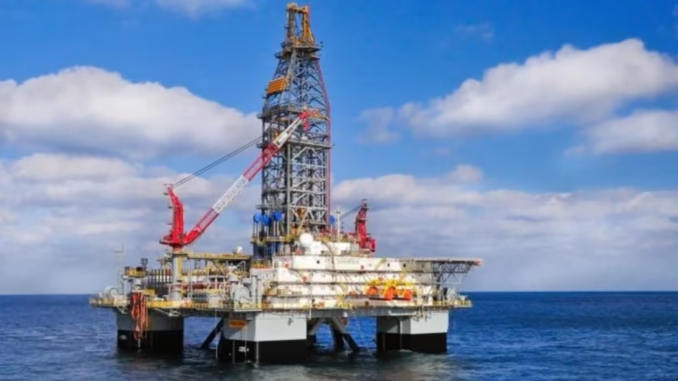
In a strategic pivot that underscores growing frustrations within the UK’s energy sector, Harbour Energy, the largest oil and gas producer in the North Sea, is actively scouting merger and acquisition opportunities across the United States. This move comes as the company seeks to establish a “scalable position” in the world’s biggest energy market, where it currently has no presence.
With production increasingly shifting toward the western Atlantic, Harbour’s exploration of both onshore and offshore deals signals a potential diversification away from its traditional UK base.
The impetus for this expansion appears rooted in mounting challenges at home, particularly the UK’s Energy Profits Levy (EPL), commonly known as the windfall tax. Introduced to capture excess profits amid high energy prices, the levy has been criticized for stifling investment and accelerating production declines in the North Sea. Harbour Energy itself has halved its UK investment plans, blaming the “punitive” tax regime for the cutbacks.
The company reported paying an effective tax rate exceeding 100% in recent years, highlighting how the policy has eroded profitability and deterred new projects.
As a result, Harbour has explicitly reduced future activity and investment levels in the UK, redirecting focus toward more favorable jurisdictions.
This isn’t an isolated case. The broader UK oil and gas industry is grappling with the dual pressures of the windfall tax and the government’s aggressive Net Zero agenda, which aims for carbon neutrality by 2050. Industry groups like Offshore Energies UK (OEUK) have warned that extending or toughening the EPL could jeopardize up to 35,000 jobs and forfeit £12 billion in tax revenues.
The tax, currently set at 38% and extended through 2030, has shattered investor confidence, leading to accelerated declines in North Sea output and supply chain instability.
Critics argue it discourages domestic production while failing to adequately fund the green transition, with some studies revealing that many firms underestimate the financial risks posed by Net Zero policies, including asset impairments and write-downs.
The UK’s political landscape adds further uncertainty. While the Labour government has committed to maintaining the windfall tax until 2030, Chancellor Rachel Reeves is reportedly considering an early phase-out to unlock up to £40 billion in investments.
Opposition voices, including the Conservatives, advocate scrapping Net Zero mandates altogether to boost North Sea activity, arguing that current policies add unnecessary costs and delays to projects.
In response, the government has launched consultations on overhauling the tax regime post-2030, aiming to balance fiscal needs with energy security.
Overview of North Sea Production Decline
The North Sea oil and gas sector, primarily in the UK Continental Shelf (UKCS), has experienced a steady decline in production since its peak in the late 1990s and early 2000s. This downturn is attributed to a combination of natural reservoir depletion, maturing fields, reduced exploration and investment, and policy pressures such as the UK’s Energy Profits Levy (windfall tax) and Net Zero commitments. Below, I’ll outline key historical trends, current statistics, causes, and future projections based on recent data.
Historical Trends
Peak Production: The North Sea reached its highest output around 1999, producing approximately 4.3 million barrels of oil equivalent per day (boed).
This included both oil and gas from fields shared between the UK, Norway, and other nations, but UK-focused production drove much of the activity.
Post-Peak Decline: By the mid-2000s, the UK became a net importer of oil and gas for the first time since the 1970s.
Production has fallen consistently due to the exhaustion of easier-to-extract reserves, with the UK burning through over 85% of its economically viable gas reserves after 50 years of operations.
Recent Years: Total UK energy production, including oil and gas, hit a record low in the third quarter of 2024.
In 2024, production averaged around 1 million boed, a sharp drop from historical highs.
Well interventions—a key indicator of maintenance and enhancement efforts—declined from 443 in 2023 to 425 in 2024, continuing a downward trend.
Current Production Levels (2024-2025)In the financial year 2024-25, overall North Sea oil and gas production fell by 8% to 60 million tons of oil equivalent (toe).
This included a 5% drop in oil production and a steeper 10% decline in natural gas, with the gas decline occurring at twice the rate of oil.
The UK currently produces enough oil and gas to meet about half of its domestic needs, importing the remaining 40% of total energy requirements.
Oil and gas still account for 75% of the UK’s total energy consumption.
There are 283 active fields in the North Sea, but natural decline rates are high without new investments.
Causes of Decline: Natural Factors
Maturing reservoirs and geological limits are primary drivers, with fields depleting faster than new discoveries can replace them. Exploration has hit unprecedented lows, and 2025 is projected to be the first year since 1960 without significant new drilling activity due to fiscal uncertainties.
Policy and Economic Pressures: The UK’s windfall tax (Energy Profits Levy) and Net Zero policies have accelerated the decline by deterring investment.
Industry groups argue that policy decisions, rather than geology alone, are hastening the drop-off, leading to reduced domestic output and increased reliance on higher-emission imports.
For instance, lower oil prices (from $90/barrel in April 2024 to $65/barrel in March 2025) combined with the tax regime have slashed revenues and profitability.
Economic Impacts: Government revenues from North Sea production dropped from £6.1 billion in 2023-24 to £4.5 billion in 2024-25.
Scotland’s share (geographical basis) was around £4.1 billion in 2024-25.
Expenditure on the UKCS rose 6.5% to £16.2 billion in 2024, driven by capital and decommissioning costs.
A Stark Warning for Net Zero and Deindustrialization.
The world is bifurcating into two camps. The first follows Net Zero into a fiscal and financial pool of failure, or the second camp of solid energy policies based upon no subsidies. More businesses will be leaving the EU, UK and Canada as they roll down the Net Zero path.
For Harbour and its peers, the U.S. represents a beacon of stability and opportunity. With lower tax burdens, vast reserves, and a more predictable regulatory environment, America offers a hedge against the UK’s policy volatility. While Harbour hasn’t announced specific deals yet, its proactive stance raises a pressing question for the industry: Will more UK firms follow suit, investing heavily stateside or even relocating operations? As global energy demands evolve, the allure of the U.S. market could reshape the fortunes of British oil giants, potentially at the expense of the North Sea’s legacy.
Got Questions on investing in oil and gas?
If you would like to advertise on Energy News Beat, we offer ad programs starting at $500 per month, and we use a program that gets around ad blockers. When you go to Energynewsbeat.co on your phone, or even on Brave, our ads are still seen. The traffic ranges from 50K to 210K daily visitors, and 5 to 7K or more pull the RSS feeds daily.








